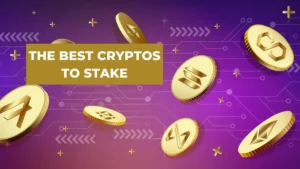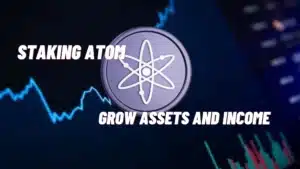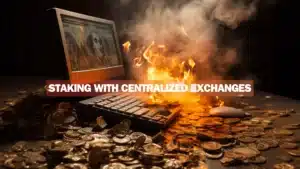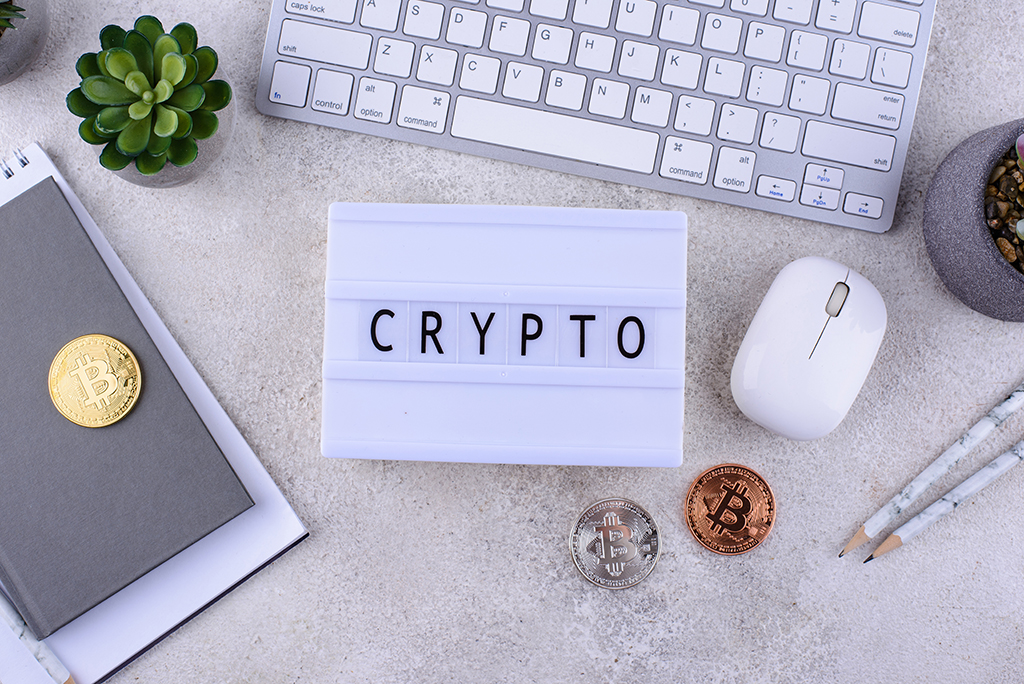This is article 7/8 in Part I of our series, How To Build Wealth and Grow Crypto Assets and Income by Staking and it will give any new crypto investor a springboard to launch from.
Key Takeaways
- Consider regulations where you live
- Do your own research (DYOR)
- Understand the risks
- Choose a reliable exchange
- Understand the fees
- Start with small investments
- Properly secure your crypto
- Diversify your portfolio
- Seek professional guidance
- Have a strategy
- Stay updated
- Ignore the hype
- Be patient
How to invest in crypto: for beginners
Here are some steps that new investors can take to begin investing in cryptocurrency:
1. Consider regulations: Regulations vary from country to country and are constantly evolving. For example, Germany is much tougher on crypto than Dubai and New York is much tougher on crypto than Wyoming. Take time to know the laws and regulations in your jurisdiction before investing.
2. Research: This is an important step that many ignore. Newbies often buy what their friends buy, which can be a mistake. Before investing, research different protocols, tokens, the technology behind them and their use cases.
DYOR=Do Your Own Research
Meme coins, like Dogecoin serve as a great example. Dogecoin was invented as a joke and is meant to hyperinflate. That means the token should lose value as more tokens are issued, yet it is one of the more popular cryptocurrencies.
At Blocks United, we generally avoid meme coins.
3. Understand the risks: Cryptocurrency is a highly speculative investment. Prices are volatile, technology can be quickly bested by competitors, hacks can wreck value, and investors can lose interest. Researching the various protocols and tokens will help uncover the risks.
YouTubers to consider following are Real Vision Crypto, Cryptocito and Coin Bureau.
It is important to understand the risks and only to invest money that you can afford to lose. Never gamble with your rent or food money. Newbies should start with small amounts.

4. Choose a reliable exchange: Centralized exchanges make buying crypto from fiat currency easy. Choose a reputable and reliable exchange that is properly licensed and regulated.
FTX collapsed, Binance is under investigation from the U.S. justice department and SEC, and Coinbase is facing charges from the SEC for allegedly selling unregistered securities. So, Kraken may be the best option right now for U.S. residents.
Use decentralized exchanges (DEXs) once you have withdrawn your crypto from a centralized exchange to your noncustodial wallet.
There are many decentralized exchanges. Uniswap is the most widely used DEX on Ethereum, Quickswap on Polygon, and Osmosis in the Cosmos.
Osmosis allows you to buy crypto from fiat using Kado or Transak, but there are fees to consider. Please know that DEXs do not know you or keep track of your transactions like a centralized exchange would. So, keep good records for tax purposes.
5. Understand the fees: Centralized exchanges are always more expensive than decentralized exchanges. You pay more for the ease and convenience, but remember that centralized exchanges can lock you out and steal your crypto. See FTX, Celsius, and Voyager for proof.
Crypto is about decentralization, so after buying from a centralized exchange, withdraw to your hardware wallet and use DEXs to trade.
6. Start small: As a new investor, it is wise to start with small investments until you become more comfortable owning crypto. This will allow you to gain experience and learn from your mistakes without risking too much capital.
We suggest not more than 5% of your crypto portfolio in any single altcoin. For newbie investors who only want to own a single crypto to get started, bitcoin is the obvious choice.
7. Properly secure your crypto: Once you have purchased cryptocurrency from a centralized exchange, move your tokens off the exchange and to a noncustodial wallet. This is known as “self-custody” and is perhaps the scariest part for newbies.
We recommend using a hardware wallet, which looks like a USB drive. They store the keys that unlock your crypto offline and are referred to as “cold wallets.” The most widely used hardware wallet is the Ledger.
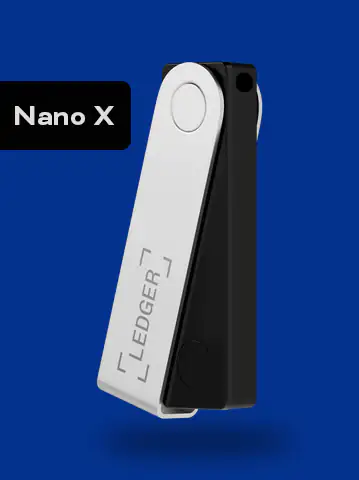
Hardware wallets provide added security because transactions cannot generally go through without pressing the physical buttons on the device in your hand.
Software wallets are known as “hot wallets” and are much less secure. Examples of hot wallets include Metamask, Exodus, and Keplr. Hot wallet keys to your crypto are stored on your computer or mobile device.
Software wallets are much less intimidating, so they are the simplest place for newbies to begin self-custody. However, we encourage everyone to take the time to learn how to use a hardware wallet.

8. Diversify your assets: The crypto market is not limited to Bitcoin and Ethereum. There are many other types of crypto assets. Some serve a purpose, like Polygon helping Ethereum scale and Cosmos allowing trustless bridging and for blockchains to secure each other.
Then there are stablecoins, utility tokens and governance tokens. Each has its own unique characteristics and it is important to understand the differences. To reduce risk, invest in a mix of different cryptocurrencies.
9. Seek professional guidance: Investing in crypto can be a complicated and risky process, especially for new investors. Listen to cryptocurrency experts before investing. They can help you understand the potential risks and rewards and guide you toward a diversified portfolio that aligns with your investment goals.
At Blocks United we like Real Vision Crypto, Real Vision Finance, and for an opposite opinion check out Hedgeye. Listen to “moonboys” who love crypto and those who hate it.
10. Have a strategy: This can include when to buy or sell and what to do when there is market volatility. Retail investors are known in the financial services industry as the “dumb money” because they trade on emotion. That usually means they buy high and sell low.
Having a strategy in place can help you minimize bad decisions based on emotions.
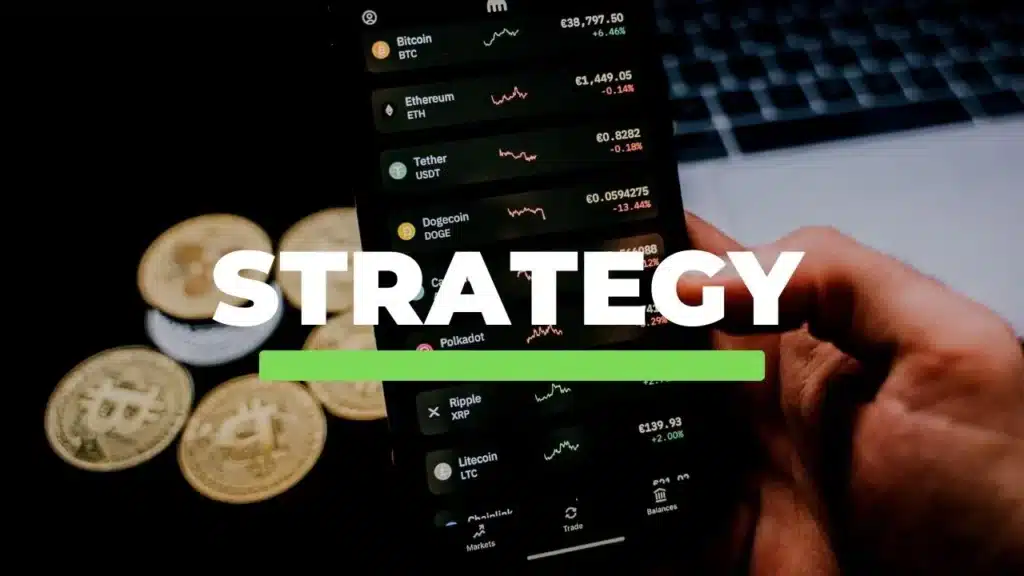
Dollar Cost Averaging is an excellent strategy for those who don’t want to figure out when to buy. That simply means you buy the same amount at regular intervals, like $50/week for example.
You wind up buying less when prices are high and more when prices are low, which equals a lower average cost over time.
11. Stay updated: The crypto space changes quickly. It is highly volatile and prices change rapidly. New projects and regulations are continuously emerging. Staying updated with the latest news and developments will help you make informed investment decisions.
Check out Coin Bureau’s weekly news and the Real Vision Crypto Daily Briefing.
12. Ignore the hype: Do your own research and avoid blindly following hype or rumors. While a project may have a strong community or marketing campaign, that does not guarantee success. Many people get caught up in what Elon Musk says about Bitcoin or Dogecoin, which is a mistake.
It’s worth noting that the biggest gains or losses have usually already happened by the time you hear about it.
Following the crowd will put you in the “dumb money” category. Instead, follow your strategy and process.
13. Be patient: The crypto market can be highly volatile. If you are a long-term investor, be patient and avoid making impulsive decisions based on short-term price fluctuations. Instead, focus on the long-term potential of the projects and tokens you own.
Our unofficial motto at Blocks United is, “Stake, Claim, Restake. Wash, Rinse, Repeat.” Volatility is a friend to long-term investors who support networks by staking their tokens. As people are scared out of their crypto by falling prices, those who continue to stake their tokens benefit by higher staking yields.
As more people stake the yield falls, because rewards are divided up between more wallet addresses. The opposite is also true. As fewer people stake, the yield rises and rewards those with a long-term perspective.
Staking tokens is an excellent way to Dollar Cost Average, especially since you aren’t committing fresh capital. Instead, it’s the staking rewards that buy you more tokens.
Remember that investing in cryptocurrency is a high-risk endeavor and new investors should proceed with caution. Markets are highly volatile, so get your feet wet with small investments.
It’s always recommended to diversify your assets, not to invest more than you can afford to lose, and to seek professional guidance before investing. And always bear in mind that past performance is not indicative of future results.
Be on the lookout for our next article in the Building Wealth series: Self-Custody and Crypto Wallets for Beginners.
Until then, be well!
Frequently Asked Questions
Don’t invest more than you are willing to lose. Consider it gambling in the beginning.
Generally speaking, newbies lose money. The best way to get your feet wet is by investing in Bitcoin. Once you’re comfortable, consider investing in large cap altcoins, like ETH, ATOM, MATIC, etc.
This is a tough question. It all depends on so many factors, like the tokens purchased, how much you invest, your timing, etc. Staking your PoS tokens is a great way to build long-term wealth, but it doesn’t happen overnight.
Probably not. Most day traders lose money.
Nothing we say is financial advice or a recommendation to buy or sell anything. Cryptocurrency is a highly speculative asset class. Staking crypto tokens carries additional risks, including but not limited to smart-contract exploitation, poor validator performance or slashing, token price volatility, loss or theft, lockup periods, and illiquidity. Past performance is not indicative of future results. Never invest more than you can afford to lose. Additionally, the information contained in our articles, social media posts, emails, and on our website is not intended as, and shall not be understood or construed as financial advice. We are not attorneys, accountants, or financial advisors, nor are we holding ourselves out to be. The information contained in our articles, social media posts, emails, and on our website is not a substitute for financial advice from a professional who is aware of the facts and circumstances of your individual situation. We have done our best to ensure that the information provided in our articles, social media posts, emails, and the resources on our website are accurate and provide valuable information. Regardless of anything to the contrary, nothing available in our articles, social media posts, website, or emails should be understood as a recommendation to buy or sell anything and make any investment or financial decisions without consulting with a financial professional to address your particular situation. Blocks United expressly recommends that you seek advice from a professional. Neither Blocks United nor any of its employees or owners shall be held liable or responsible for any errors or omissions in our articles, in our social media posts, in our emails, or on our website, or for any damage or financial losses you may suffer. The decisions you make belong to you and you only, so always Do Your Own Research.



